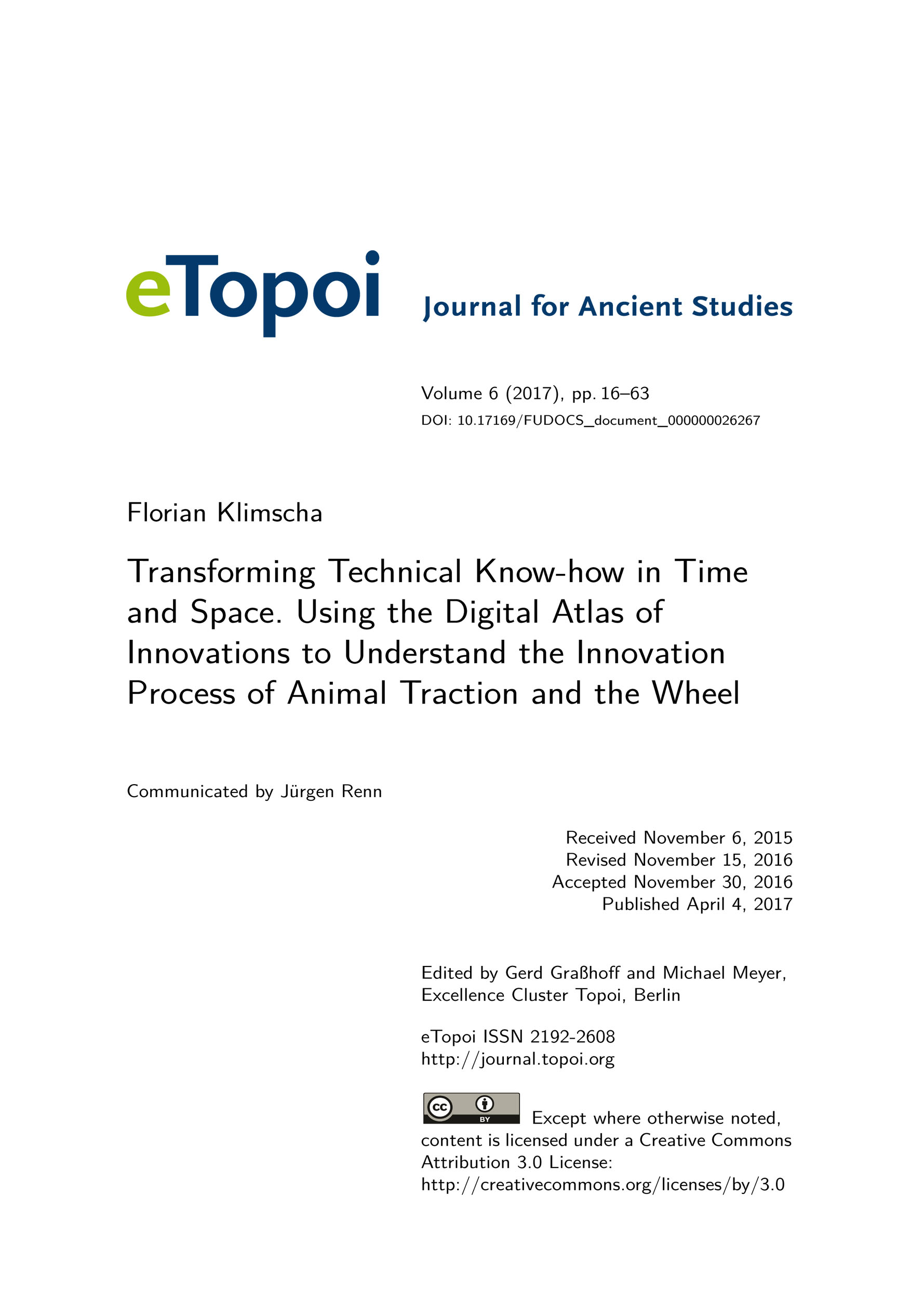Transforming Technical Know-how in Time and Space. Using the Digital Atlas of Innovations to Understand the Innovation Process of Animal Traction and the Wheel
The paper uses a new research tool, the Digital Atlas of Innovations to re-think the invention and diffusion of wheeled vehicles in Eurasia during the 4th and 3rd millennium BC. It is argued that the diffusion of wheeled vehicles is the result of the local transformation of several technical components which have been known since the Pottery Neolithic. The technical knowledge to combine these components was widely spread and resulted in experimentation with the use of animal traction already in the late 6th millennium. It were, however, the significantly better connected networks which were established during the early 4th millennium, which enabled the innovation-diffusion of the wheel from its presumed zone of origin in the Black Sea area to the Baltic. The same technology (minus the wheels) is also adopted in many other regions, where it is transformed according to local specifications (ploughs, sleds).
Der Aufsatz untersucht die Verbreitung von Räderfahrzeugen während des 4. und 3. Jahrtausends mit einem neuen wissenschaftlichen Werkzeug, dem Digital Atlas of Innovations. Es wird argumentiert, dass die Diffusion von Rad und Wagen das Resultat der lokalen Transformation technischer Komponenten ist, die mindestens seit dem keramischen Neolithikum bekannt waren. Das technische Wissen, diese Komponenten zu kombinieren, war weit verbreitet und resultierte in Experimenten mit tierischer Zugkraft bereits im späten 6. Jahrtausend. Jedoch erlaubten erst die signifikant dichteren Netzwerke, die mit dem frühen 4. Jahrtausend beginnen, die schnelle Diffusion des Rades aus seiner angenommenen Ursprungszone im Schwarzmeerraum bis zur Ostsee. Dieselbe Technologie (ohne Räder) wird auch in anderen Regionen adaptiert und anhand lokaler Spezifikationen transformiert, zum Beispiel in den Pflug oder Schlitten.

